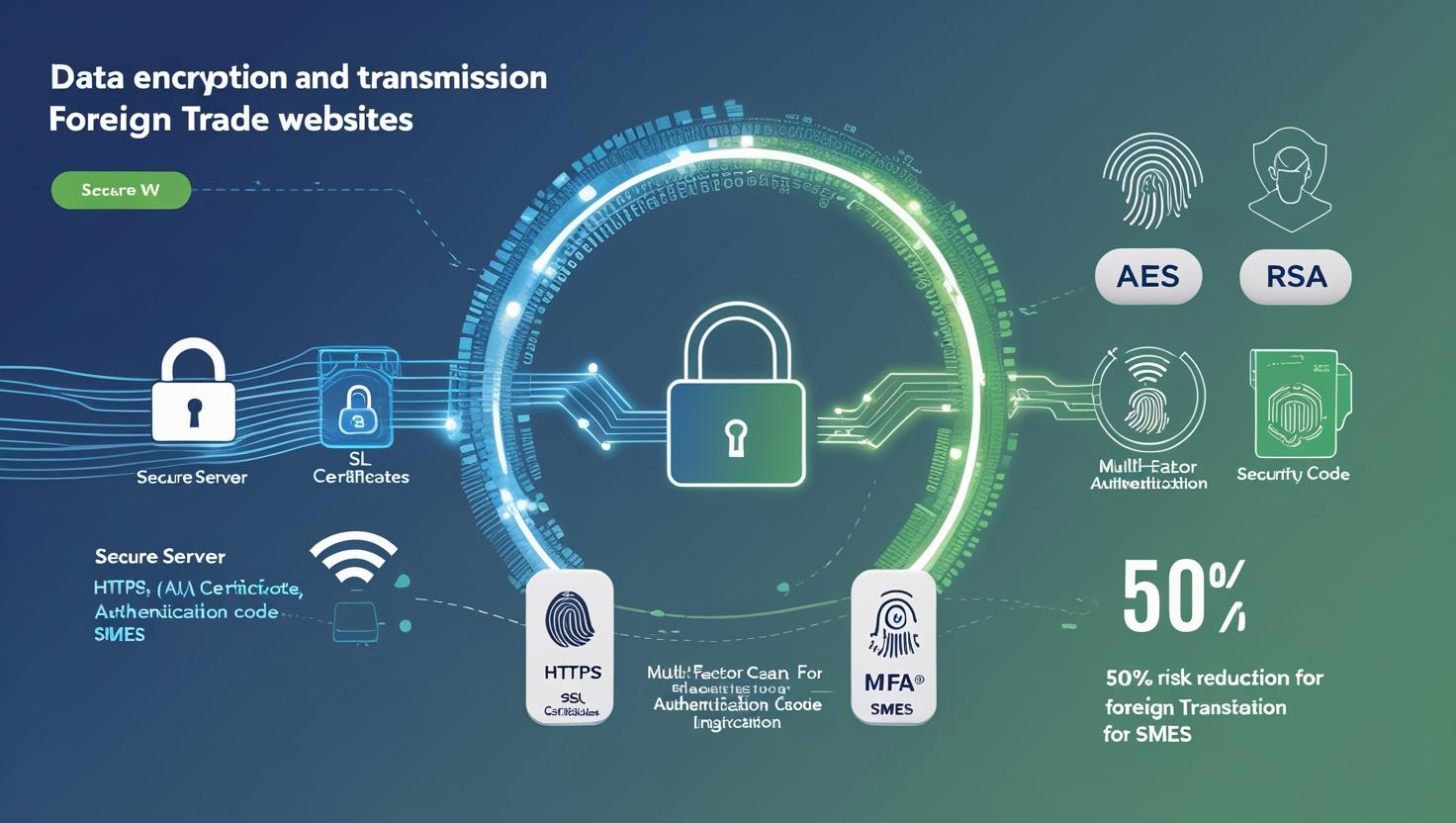With the rapid growth of cross-border e-commerce and foreign trade, foreign trade websites have become the primary point of contact between businesses and global customers. However, cyberattacks, data breaches, and payment risks are threatening the operational security of businesses. According to a report by the International Trade Centre (ITC) , approximately 42% of small and medium-sized enterprises have experienced cybersecurity incidents during overseas transactions. Therefore, building a highly secure foreign trade website has become an essential strategy for businesses expanding overseas.
1. Establish a comprehensive protection system
The security protection of foreign trade websites should start from the overall system:
Network firewall and intrusion detection system : Block malicious access through Web Application Firewall (WAF) and intrusion detection system (IDS) to prevent attacks such as SQL injection and cross-site scripting.
Access control and permission management : Limit backend operation permissions to ensure that sensitive information is only accessible to authorized personnel.
Regular security audits and vulnerability scanning : Use automated tools to regularly detect website vulnerabilities and fix them in a timely manner.
** Cybersecurity and Infrastructure Security Agency (CISA) ** points out that a systematic security management system is the core guarantee for enterprises to protect against data leaks.
2. Data encryption and transmission security
Foreign trade websites involve a large amount of customer information and transaction data, and data security cannot be ignored:
HTTPS and SSL certificates : Ensure that all data is encrypted during transmission to prevent it from being intercepted.
Encrypted storage of sensitive data : For example, customer email addresses, order information, and payment data are encrypted using AES or RSA to prevent risks from database leaks.
Multi-factor authentication (MFA) : Enable MFA when logging into the backend or payment management system to improve account security.
According to research by the Global Cyber Alliance , enabling HTTPS and data encryption can reduce the risk of data breaches for small and medium-sized enterprises by nearly 50%.

3. Preventing payment and transaction risks
The transaction process of foreign trade websites is particularly critical:
Secure payment gateway : Integrate PCI DSS-certified payment systems such as PayPal and Stripe to ensure the security of the payment process.
Transaction behavior monitoring : Real-time detection of abnormal orders or repeated payment behaviors to reduce fraud risks.
Refund and dispute mechanism : Establish a transparent and standardized refund and dispute handling process to enhance customer trust.
By standardizing transaction and payment processes, foreign trade websites not only protect corporate interests, but also improve the security experience of purchasing customers.
4. Safety management and employee training
In addition to technical protection, internal enterprise management is equally important:
Safety operation specifications : Establish website management, data backup and emergency response processes.
Regular employee training : Strengthen employees' cybersecurity awareness and avoid man-made security risks such as phishing emails and weak passwords.
Emergency response mechanism : When a security incident occurs, rapid response and recovery are provided to reduce business losses.
Combined with the ISO/IEC 27001 information security management system, enterprises can form a complete security management closed loop and improve the security level of foreign trade websites.
5. Practice tools and platform selection
When building and maintaining foreign trade websites, companies can use professional platforms to improve security:
Pinshop website building platform : provides HTTPS encryption, multi-layer access control and payment security interface to help companies quickly build safe and reliable foreign trade websites.
Security monitoring tools : such as Cloudflare and Sucuri, which monitor traffic anomalies and potential attacks in real time.
Data backup and recovery : Regularly and automatically back up website data to ensure quick recovery in the event of an attack.
Through the Pinshop website building platform, enterprises can achieve all-round protection of website security, transaction security and data security.
Summarize :
The security of a foreign trade website directly impacts the trust and operational stability of a company's overseas business. By establishing a comprehensive protection system, data encryption, payment security, internal management, and professional platform support, companies can effectively prevent cyberattacks and data leaks, ensuring the security of purchasing customer information. The Pinshop website building platform offers a comprehensive suite of security features, allowing companies to easily build highly secure foreign trade websites and protect data and transaction security.
Pinshop website building platform CTA :
Want to build a secure and reliable foreign trade website while protecting customer data? Try Pinshop's website building platform now and experience full-process security management for a more secure overseas business!

Recommended article: How to attract accurate purchasing customers on foreign trade websites






